Exploring the realities of seafood produced and/or processed in North Carolina for three days this past May was an eyeopener. Right up front, I’d like to thank the North Carolina Department of Agriculture & Consumer Services and Tabletop Media Group for this amazing opportunity.
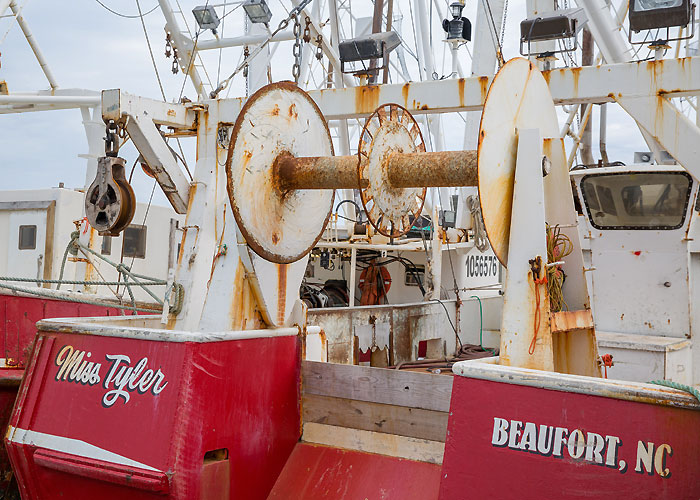
This was a journey toward awareness and understanding. We talked with fish farmers, shell fish farmers, shrimpers, commercial fishermen, seafood packing/shipping company owners, an attorney that specializes in maritime law, and the quilting and church ladies of Harker Island who shared a home-made meal and stories of growing up in multi-generation seafaring families.
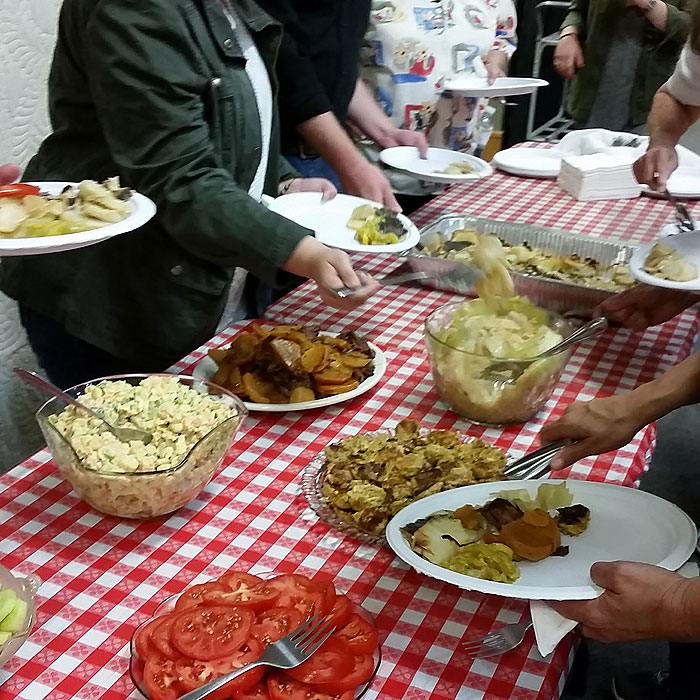
I’ve struggled with this article because it’s about three days filled with roller-coaster emotions. First of all, I love seafood! So three days spent happily gorging myself on bounty harvested right from NC waters moments prior was a dream come true. The upside.
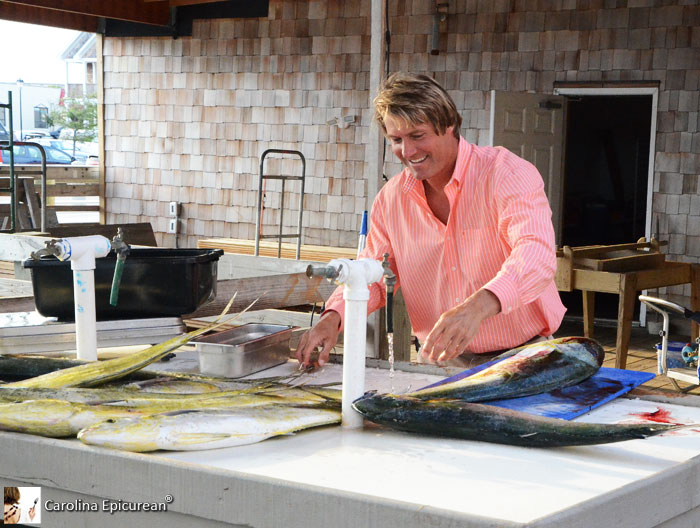
The downside – hearing first hand the challenges faced by extremely hard working people who rely on fishing, shrimping, crabbing, and growing & harvesting shell fish for a living. It’s their life, going back generations in many cases. My natural instinct is to try to figure out how to fix things and help, but some problems are just so huge and complicated.
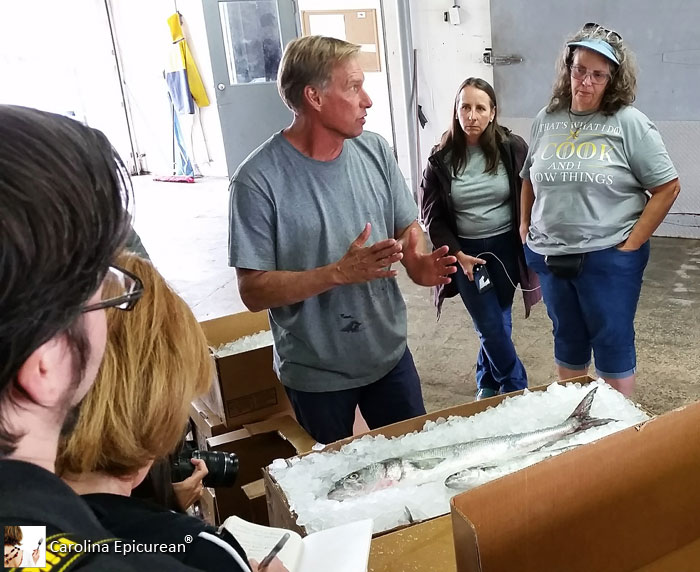
Here’s just one story about a current hot topic that lots of folks we met were talking about. But before I tell you the story, I’ll say that all stories have two sides and we only heard one. Nevertheless, it was compelling.
We shared our table overflowing with fresh-caught NC seafood dishes at the Beaufort Grocery Company with two shrimpers: one full time who also advocates for the industry in Raleigh, and another that shrimps during the summer and teaches maritime careers at the local high school during the school year.
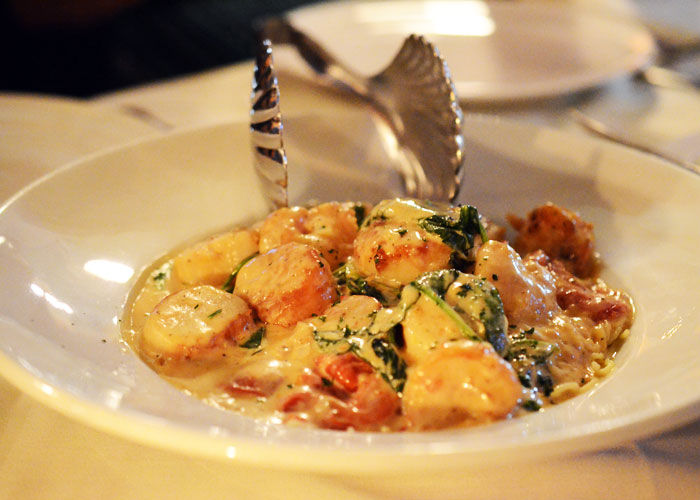
They told us of regulations sent out from Raleigh requiring them to reduce the number of incidental fish caught in their nets when shrimping by 40%. They cut holes in their nets to accomplish the mandate (don’t ask me how the fish got out, but not the shrimp), and reduced the incidental fish caught by 52%! Above and beyond, right?
Then another mandate came from Raleigh to reduce incidental fish caught by another 40%! The frustration and worry of the possibility of loosing their businesses due to regulations such as these was plain on their faces. In fact, it was palpable.
Click, click, click – back up to a high point on the coaster. The teacher/shrimper explained that he had sold his two shrimp boats and was building a new boat from the ground up with the help of his students. They were learning boat building skills hands-on. Skills that, if need be, could be transferred to non-marine careers. What a wonderful way to learn!
And finally, whoa, back down again! If all the current proposed regulations are passed, this new, $100,000 boat will have mostly served as a lesson in boat building for students rather than a means toward years of providing a livable income for the shrimper and his family. Of course, he could sell the boat, but who would buy it? And he’d loose a part of who he is.
I’ll be writing about our incredible meals in future posts. In the meantime, take a look at more images from our trip (hover for description, click to enlarge):

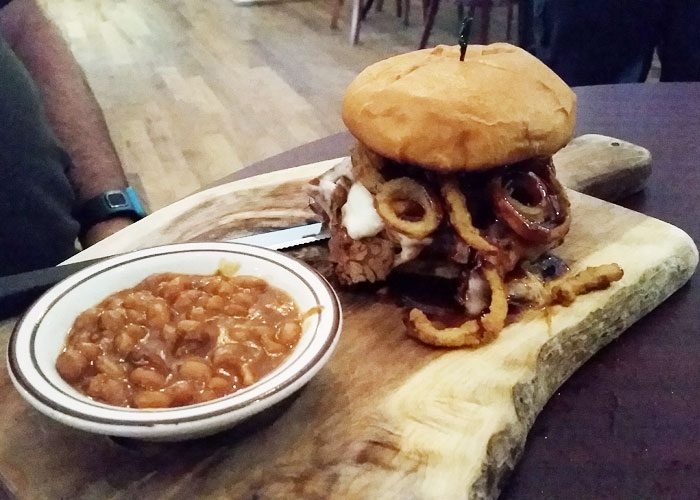

one sided for sure
Hopefully I’ll get the chance to hear the other side of the story soon. As I said in the article, every story has two sides.